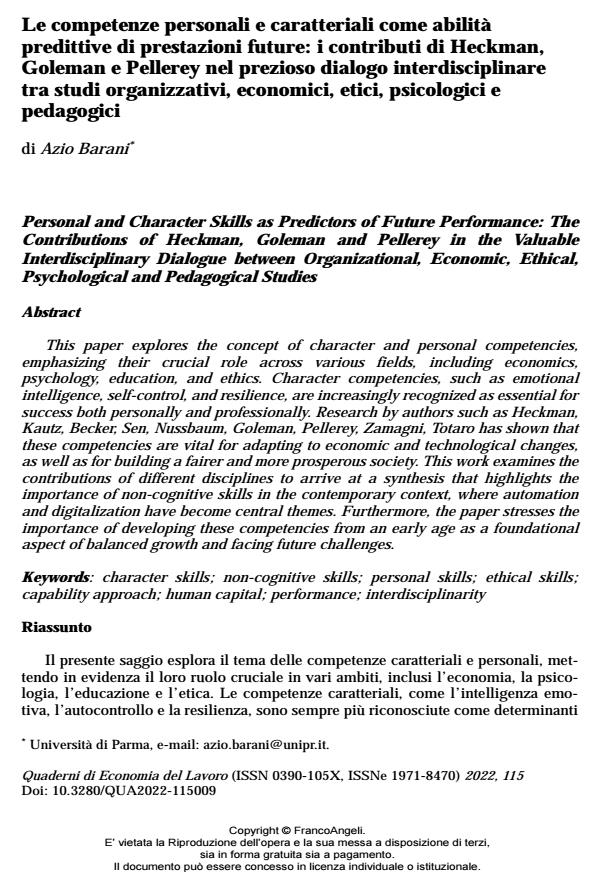Personal and Character Skills as Predictors of Future Performance: The Contributions of Heckman, Goleman and Pellerey in the Valuable Interdisciplinary Dialogue between Organizational, Economic, Ethical, Psychological and Pedagogical Studies
Journal title QUADERNI DI ECONOMIA DEL LAVORO
Author/s Azio Barani
Publishing Year 2025 Issue 2022/115
Language Italian Pages 20 P. 229-248 File size 81 KB
DOI 10.3280/QUA2022-115009
DOI is like a bar code for intellectual property: to have more infomation
click here
Below, you can see the article first page
If you want to buy this article in PDF format, you can do it, following the instructions to buy download credits

FrancoAngeli is member of Publishers International Linking Association, Inc (PILA), a not-for-profit association which run the CrossRef service enabling links to and from online scholarly content.
This paper explores the concept of character and personal competencies, emphasizing their crucial role across various fields, including economics, psychology, education, and ethics. Character competencies, such as emotional intelligence, self-control, and resilience, are increasingly recognized as essential for success both personally and professionally. Research by authors such as Heckman, Kautz, Becker, Sen, Nussbaum, Goleman, Pellerey, Zamagni, Totaro has shown that these competencies are vital for adapting to economic and technological changes, as well as for building a fairer and more prosperous society. This work examines the contributions of different disciplines to arrive at a synthesis that highlights the importance of non-cognitive skills in the contemporary context, where automation and digitalization have become central themes. Furthermore, the paper stresses the importance of developing these competencies from an early age as a foundational aspect of balanced growth and facing future challenges.
Keywords: character skills; non-cognitive skills; personal skills; ethical skills; capability approach; human capital; performance; interdisciplinarity
Azio Barani, Le competenze personali e caratteriali come abilità predittive di prestazioni future: i contributi di Heckman, Goleman e Pellerey nel prezioso dialogo interdisciplinare tra studi organizzativi, economici, etici, psicologici e pedagogici in "QUADERNI DI ECONOMIA DEL LAVORO" 115/2022, pp 229-248, DOI: 10.3280/QUA2022-115009